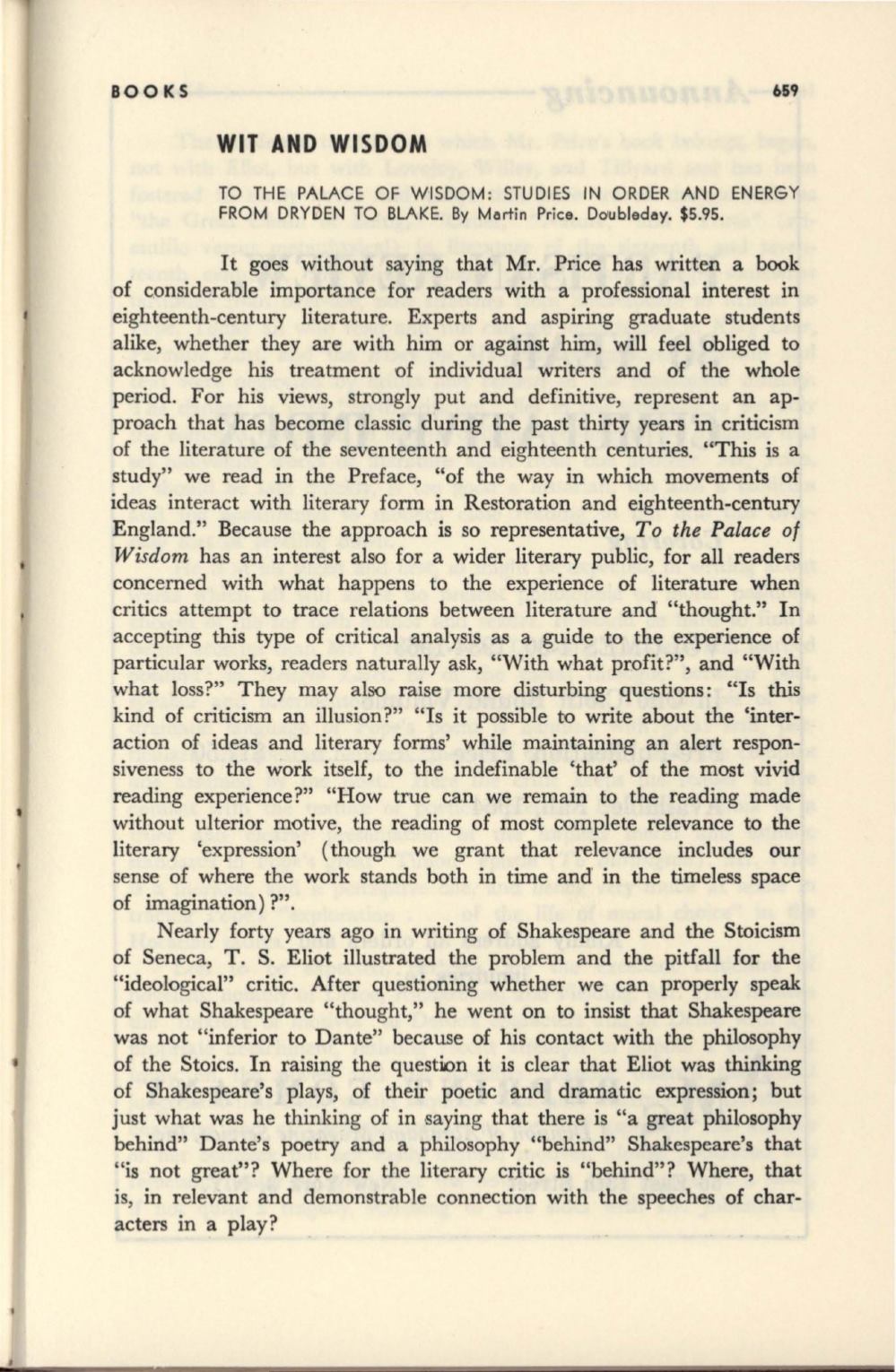

BOOKS
659
WIT AND WISDOM
TO THE PALACE OF WISDOM: STUDIES IN ORDER AND ENERGY
FROM DRYDEN TO BLAKE. By Mortin Price. Do'ubledoy. $5.95.
It goes without saying that Mr. Price has written a book
of c.onsiderable importance for readers with a professional interest in
eighteenth-century literature. Experts and aspiring graduate students
alike, whether they are with him or against him, will feel obliged to
acknowledge his treatment of individual writers and of the whole
period. For his views, strongly put and definitive, represent an ap–
proach that has become classic during the past thirty years in criticism
of the literature of the seventeenth and eighteenth centuries. "This is a
study" we read in the Preface, "of the way in which movements of
ideas interact with. literary form in Restoration and eighteenth-century
England." Because the approach is so representative,
To the Palace of
Wisdom
has an interest also for a wider literary public, for all readers
concerned with what happens to the experience of literature when
critics attempt to trace relations between literature and "thought." In
accepting this type of critical analysis as a guide to the experience of
particular works, readers naturally ask, "With what profit?", and "With
what loss?" They may also raise more disturbing questions: "Is this
kind of criticism an illusion?" "Is it possible
to
write about the 'inter–
action of ideas and literary forms' while maintaining an alert respon–
siveness to the work itself, to the indefinable 'that' of the most vivid
reading experience?" "How true can we remain to the reading made
without ulterior motive, the reading of most complete relevance to the
literary 'expression' (though we grant that relevance includes our
sense of where the work stands both in time and in the timeless space
of imagination)?".
Nearly forty years ago in writing of Shakespeare and the Stoicism
of Seneca, T. S. Eliot illustrated the problem and the pitfall for the
"ideological" critic. After questioning whether we can properly speak
of what Shakespeare "thought," he went on to insist that Shakespeare
was not "inferior to Dante" because of his contact with the philosophy
of the Stoics. In raising the question it is clear that Eliot was thinking
of Shakespeare's plays, of their poetic and dramatic expression; but
just what was he thinking of in saying that there is "a great philosophy
behind" Dante's poetry and a philosophy "behind" Shakespeare's that
"is not great"? Where for the literary critic is "behind"? Where, that
is, in relevant and demonstrable connection with the speeches of char–
acters in a play?









